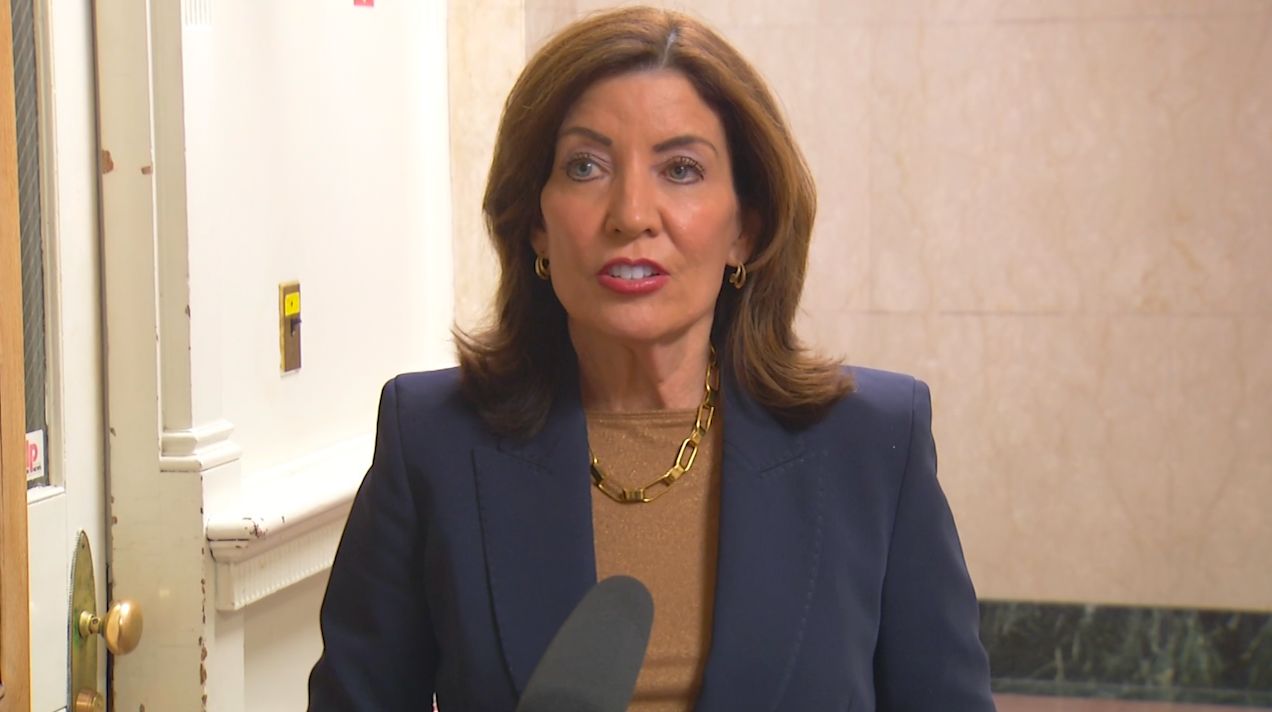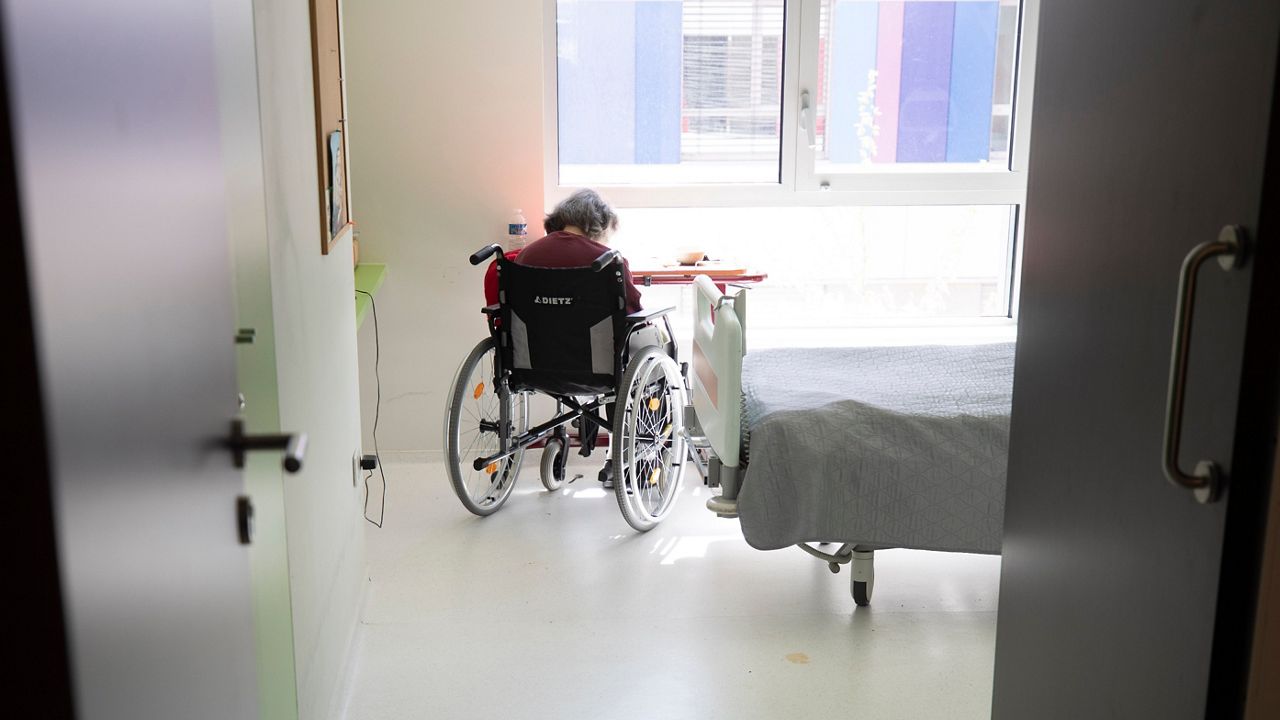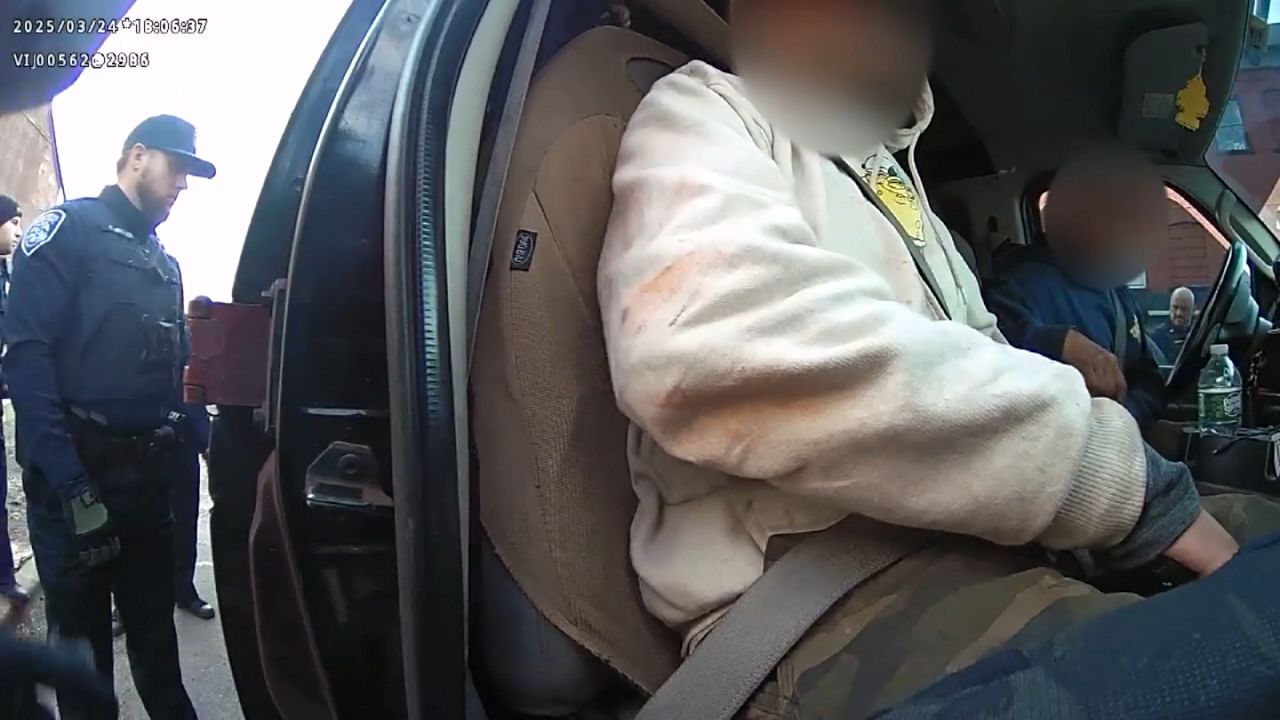New York parents are expected to pose the greatest pushback to Gov. Kathy Hochul's plans to limit the use of smartphones in schools, but lawmakers and leaders with the state Parent Teacher Association said Wednesday they're prepared to defend the proposal, which will keep students the most safe.
Hochul and her staff have held meetings every day this week to shape a new policy to limit the use of smartphones and other mobile devices in New York schools — with the governor meeting with Capital Region schools Monday and districts Tuesday on Long Island. Other representatives of her office met with the state PTA on Wednesday about the proposal for elementary, middle and high school students.
"I saw a statistic last month I haven't been able to forget: That 72% of teachers across the nation report that cell phones are a major distraction for students in their classrooms," Hochul told reporters at Guilderland High School after Monday's roundtable, citing recent Pew Research Center findings.
Educators, parents and state leaders agree: Students need to get their focus back on track. Superintendents, teachers and other educators told the governor about their struggle with classroom distractions as students have become more addicted to their smartphones and other devices since the COVID pandemic, contributing to a sharp decline in youth mental health.
Assemblywoman Pat Fahy, who also participated in Monday's roundtable, said Wednesday she expects steep pushback from parents, but is ready to defend the need to limit smartphones in schools.
"They worry about gun violence because we have seen way too much of gun violence — we just saw the former president almost assassinated and he has the best security this country has to offer — or should have the best security — and yet, he was not safe," Fahy said.
But the state PTA is already on board, and is also prepared to overcome parent anxiety about a statewide cell phone policy.
N.Y. PTA Executive Director Kyle Belakopitsky said the association is excited about the governor's initiative to crackdown on smartphones in schools.
"We continue to be seriously concerned about cell phone usage in schools and their detrimental effects on learning, classroom activities and student mental health," Belakopitsky said in a statement. "We encourage every school to have a meaningful conversation with families, students and educators and a strict policy about when usage is — and is not — appropriate."
The PTA is planning a fall meeting with its Educational Conference Board to discuss the issue.
"We know all educational stakeholders will work together to support every child with one voice," she added.
Fahy, who chairs the Assembly Higher Education Committee, said Wednesday she has not discussed the proposal with State University of New York Chancellor John King.
SUNY did not return multiple requests for comment Wednesday about the chancellor's position on limiting smartphone use in schools and the potential impact on higher learning.
School districts across the state can restrict cell phone usage within their schools, according to the state Education Department.
"Many schools already have bans in place while others have partial bans or none," SED spokesman JP O'Hare said in a statement Wednesday.
Hochul has not asked SED for input on the policy to date.
"NYSED believes that decisions about cell phone use in schools should be made at the local level, taking into account the unique needs of students, parents, their families and communities," O'Hare said. "NYSED emphasizes the importance of community input and education for students in crafting these policies."
Department officials said the state should fund any costs associated with implementing cell phone policies to ensure policies can be altered for each district's needs.
"In addition, educating students about the proper use of cell phones is crucial as they grow older, as it prepares them to navigate the ramifications of digital etiquette and responsibility, which are essential for their success in college and future career opportunities," O'Hare said.
The Schoharie Central School District banned all cell phones, smart watches and ear buds two years ago. Schoharie Superintendent David Blanchard said the policy has reduced bullying and improved student learning.
"Parents trusted us when their kids were 5 years old coming to Kindergarten to keep them safe without a smartphone, so certainly, we can do it for high school students," he said.
Hochul on Monday said she was captivated by Schoharie's policy, and asked Blanchard several questions about dissuading parent concerns and how to enforce the policy.
"They let the parents hear from law enforcement that if the parents' worst nightmare actually occurs and there's an active shooter on site and their children are in harm's way... that actually, children are less safe in that environment when they're distracted with the cell phone in an incident like that as opposed to following the leaders of the of the adults who are trained to know what to do," Hochul said.
Blanchard said parents have thanked the district for the change, which has made students communicate better and be less likely to resort to violence to solve conflicts.
Teachers who participated in this week's discussions said a state policy would make it easier for them to manage students' use of smart devices in the classroom.
New York State United Teachers President Melinda Person said the state teachers' union fully supports the idea, which will help youth mental health and overall education.
But as a mother of four children, Person added a statewide policy will also help parents.
"We know that this is a major issue," Person said. "This is all about our students, and this is all about protecting their mental health, their learning conditions and making sure that hey are leaving school ready for adult life where they will have complete access to their phones. So we're not trying to shelter them, necessarily, but it's about learning the tools of how to create that balance in your life."










